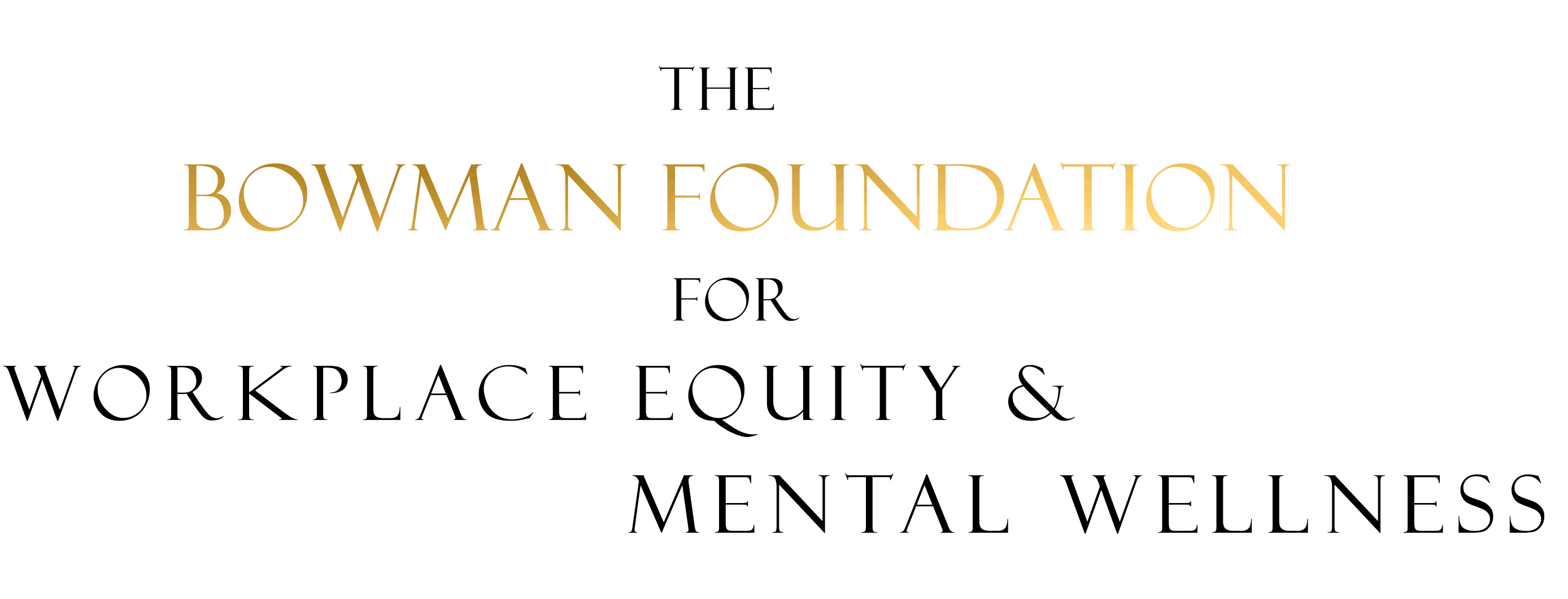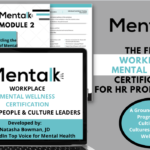After the murder of George Floyd in May of 2020, corporate America faced a racial reckoning. In addition to protests and backlash in the community, Black employees rallied their workplaces to take a stance against police brutality against unarmed Black men and women while also acknowledging and addressing the systemic barriers that they continue to encounter when seeking employment opportunities, advancements, development, equitable compensation, and inclusivity. With this call for action by Black employees and their allies, many large and small organizations committed to diversity initiatives to cultivate equitable work environments, especially for their Black employees. These commitments were a significant milestone as Black employees across America finally felt seen, heard, and recognized.
With this new commitment to racial equity by organizations, Black business owners were allowed to partner with these organizations as external Diversity Equity and Inclusion (DEI) consultants. Many Black women exited the workplace to start their own DEI firms to leverage this opportunity to share their expertise and lived experiences of being victims of discriminatory workplaces. Although my consulting firm had been in the business of DEI for some years, I saw my business grow ten-fold as my firm’s DEI services were retained by some of the largest and most well-known organizations in the nation to guide them through their efforts to cultivate racial equity. But over two years later, organizations have shifted their focus and quietly backed out of their commitments. The engagements for my work on racial equity in the workplace have slowly started to dwindle. I am not alone. Other Black-woman-owned businesses who had initially achieved success building their DEI consulting firms centered on racial equity have been forced to abandon their businesses and return to the workplace due to organizations no longer committing to this work. This drawback has made Black employees feel their employer’s DEI efforts were performative. Outside of having “listening sessions” about the Black experience at work, little to no progress toward racial equity has been achieved. DEI budgets are one of the first line items to be cut as we face inflation. DEI leaders have been given little to no autonomy or authority to move DEI initiatives forward. And, if you need more proof that not enough progress has been made, while there has been increased progress in the number of Black directors on corporate boards, only four Fortune 500 companies’ Black CEOs remain.
One of the reasons that there was a decline in the focus of racial equity was the Great Resignation. Over the past year, we’ve seen a record number of people exit the workplace, although now it appears they want to return. But that re-entry has come with a particular demand; employees are refusing to return to work cultures that are not psychologically safe and don’t promote mental wellness. During the pandemic, there was a massive 25% increase in stress levels globally. Many employees realized that with the long commutes to and from work, they increased the risk of facing microaggressions and other subtle insults with working in person again with their co-workers and sacrificing the extra time they have with their loved ones was not worth just a paycheck; they needed more. So, instead, workers are being selective with whom they accept job opportunities based on its organizational culture. As a result, organizations had to pivot their DEI focus from racial equity to mental health.
Like racial equity, mental wellness has been historically de-prioritized in workplace culture. While organizations have focused some of their efforts on physical well-being, it’s assumed that mental well-being would be an organic outcome of those efforts. They were wrong. Yoga, meditation, and walking challenges cannot atone for an unhealthy work environment. Realizing that their current mental health offerings are inadequate for addressing the impending mental health crisis due to workplace triggers, organizations have been scrambling to supplement their Employee Assistance Programs (EAPs) and mental health medical benefits with accessible, on-demand, mental health solutions.
My DEI work and other Black consultants required little to no overhead costs. We only needed our expertise, credibility, and a Zoom or Teams subscription during the pandemic. I hired my staff based on the needs of my clients and built their fees into my contracts. However, with the emerging, urgent need for quick and on-demand, tech-based mental health solutions, business owners will need access to millions of dollars in funding and investors, which has traditionally been a struggle for Black business owners to acquire. White male business owners, who struggled to get contracts and clients to support the organization’s racial equity initiatives during the past couple of years, quickly identified an alternative opportunity to find their way into the DEI space while simultaneously pushing Black business owners like myself out.
For instance, one of the companies considered to be one of the leading digital mental health solutions providers for workplaces is Headspace Health, led by Russell Glass. Under the advisement of the former President of LinkedIn, Jeff Wiener (to whom Glass had previously sold one of his companies for multi-millions of dollars), Glass merged his company Ginger with Headspace and was predicted to achieve $300 million in bookings by the end of 2021. Although Headspace’s platform initially was to “provide people with accessible and comprehensible digital health and well-being platform through comprehensive, preventable care,” they recently announced a new offering, a Leadership Development Workshop. This new offering has allowed Headspace to enter the technical and organizational culture sides of DEI work. Although addressing organizational culture is critical when addressing mental wellness challenges in the workplace, tech companies infringe on the opportunities of Black-woman-owned DEI firms who were previously doing this work. Other emerging, for-profit white-owned companies offering similar services include BetterUp, Ginger, and Lyra.
Are Technical Solutions the Answer to Addressing the Mental Health Crisis in the Workplace?
After experiencing a mental health crisis during the first few months of the COVID pandemic, being involuntarily hospitalized in a psychiatric hospital, and being diagnosed with COVID, I pivoted my DEI work to mental health equity in the workplace. After publicly sharing my story, I learned that thousands of people in my social media network shared similar mental health journeys. The common theme from their experiences was how fearful they were of discussing their mental health conditions with their workplaces. Through my newly formed non-profit, The Bowman Foundation for Workplace Equity and Mental Wellness, I launched a survey to learn more about the experiences of others. From that data and feedback, the evidence screams that the answer to the mental health crisis in the workplace isn’t technology and access to mental health care alone. Instead, the answer lies in promoting cultures of mental wellness through education, empathy, and engaging in meaningful and supportive two-way conversations about mental health between a manager and an employee. Can this still be accomplished by White-male owned mental health solution providers? Probably. Will it address the needs of the entire workforce? Probably not. According to the National Association of Mental Illness (NAMI), in 2021, people that received treatment for a mental health condition identified as
- 51.2 % female
- Non-Hispanic Asian: 20.8%
- Non-Hispanic Black or African-American: 37.1%
- Hispanic or Latino: 35.1%
- Lesbian, Gay, or Bisexual: 54.3%
These numbers matter. White males are developing mental health solutions for many people who don’t have the same lived experience. During my mental health crisis, I had a traumatic experience with racial bias from a trained psychiatrist. Because of the disconnect between our cultural backgrounds, I contemplated suicide even after being diagnosed and treated. Furthermore, workplace mental health training programs should address the specific experiences of black and other marginalized people’s mental health triggers. Moreover, Black owned-businesses should not continue to be boxed out of the workplace wellness/mental health space due to a lack of funding and investors.
I found that there is one common theme about mental health conditions. They affect everyone regardless of race, age, ethnicity, religion, sexual orientation, gender, or another part of someone’s identity. Since I’ve become a mental health advocate, I’ve had the opportunity to engage with the most diverse setup of people suffering from a particular challenge in the workplace than I have encountered in my entire career. I’m not saying that White men should be excluded from this meaningful work. In contrast, disability puts the “D” in DEI, which includes everyone. In the current mental health crisis state in the workplace, we need White men to use their privilege to get easier access to funds and investors to get the help needed for people struggling with mental wellness. I am advocating for more diversity of leaders, advocates, and partnerships with minority-owned solution providers by these White-owned mental health solutions providers to be included in this meaningful work. White men with access to funders and investors should mentor, sit on boards, and subcontract this work to Black-owned businesses and non-profits so that our workforces can get diverse solutions that will address our unique challenges. There is an opportunity for organizations to follow through with commitments made in 2020, even if those commitments have shifted. Cultivating cultures of mental wellness are moving in the right direction toward racial equity. Now is the time to get this right.
Natasha Bowman is the Founder of The Bowman Foundation for Workplace Equity and Mental Wellness and author of The Power of One: Leading with Civility, Candor, and Courage.




